
views
Advertising Your Space

Check whether you can rent. You might not be able to rent a home office. For example, your rental agreement might prohibit you from subleasing space to someone else. You should check your lease. Even if you own your home, zoning laws might prohibit business in your area. You need to check with your local zoning office to see if you can rent for business purposes. Stop into your city hall and ask. The law might also limit which kind of business can be carried out in your area. You’ll want to know that information as well before you rent to someone.
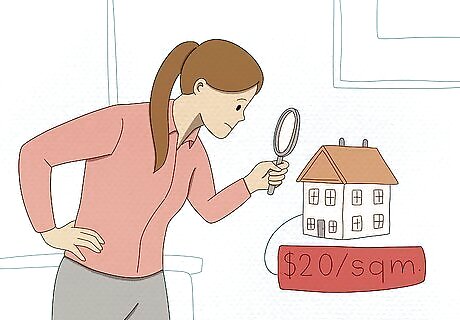
Determine the rent. You should look at how much office space rents for in the nearest business district. You can peg your rent to that amount. For example, if an office building charges $20 per square foot, then you should measure your home office space and charge a similar amount. You might be in an ideal location, such as right next to a train station. In that case, you might want to charge a little bit more than commercial realtors. If your home office is just a chair at your kitchen table, then you shouldn’t charge as much as you would if the office is an entire room.

Decide what amenities to provide. You can rent out a completely bare room as office space, or you can furnish it with a desk and chair. The more equipment you provide, the easier it will be to find tenants. You also might want to furnish a computer and a phone, although many people will probably use their laptop and cell phone. You could also let the tenant have mail sent to your home. If you do, then you probably can charge more rent.
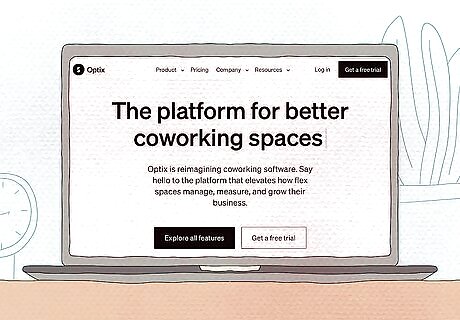
Advertise online. There are many websites you can use to reach potential renters. For example, consider using the following: Craigslist. You can advertise on your city’s “Office & Commercial” board. Your community newspaper. You can also run a classified ad with your newspaper, whether online or in a print edition. Sharedesk. This website is like Airbnb but for office space. Accordingly, you might not find a long-term renter. Instead, you might rent in weekly increments or whenever someone contacts you. Visit https://www.sharedesk.net/how-it-works/list-venue for more information. Sharedesk charges a 20% commission, but you won’t have to do any of the other paperwork described in this article.

Tell people you know that you are renting. Ideally, you could rent the office space to someone you know and trust. If you are unsure about whether you are ready to be a landlord, then renting to someone you know could be ideal. You can also rent to yourself. If you have incorporated, then your corporation could pay rent. Alternately, you could deduct the space as a business expense or as part of an “accountable plan” for employees. You should talk to a tax professional if any of these options interest you.

Confirm that you want to rent out a home office. Renting a home office might seem like an easy way to make money, but you should think seriously before going ahead and signing a lease agreement. For example, consider the following: Will you be home when the renter needs to use the office? If not, you’ll need to give the renter a key, which means they will be in your home alone. If you aren’t comfortable with that, then you probably shouldn’t rent. Does your renters or homeowners insurance cover someone else in your home? Accidents unfortunately happen. You should check whether they will be covered. How good are you at asking someone for money? A tenant might be short on cash and not pay you on time. You can try to weed out bad tenants by checking references, but you can’t guarantee that your tenant will be low maintenance.
Showing the Space
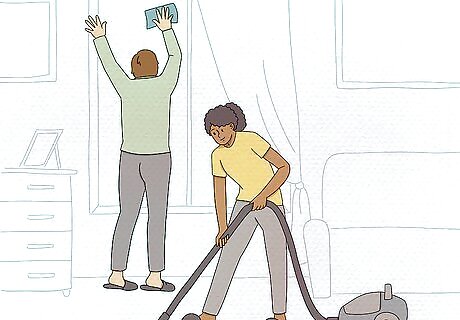
Clean the office. To draw the best potential renters, you should have a clean, uncluttered office to show. Many people use their spare rooms as storage spaces as well, so your office might be crammed with exercise equipment, old clothes, boxes of papers, etc. You should clean out the space as much as possible. Transfer exercise equipment and stored items to the attic or basement. Alternately, if you never use them, then sell them on eBay or Craigslist. Also vacuum carpets or wax hardwood floors and make sure that your windows are properly cleaned. Get rid of any dust accumulation.

Show renters the space. Promptly respond to emails or phone calls and ask the person if they want to see the space. Schedule a time for them to come look at it. You might want to have someone with you at home when potential renters stop by. You don’t know these people and anyone can find an ad online. Inviting strangers into your home is risky. Try to schedule showings on days when your partner is home. Alternately, ask a friend to visit during the showing.

Ask potential renters to fill out an application. Even though you are renting a home office, you should treat the experience as if you were renting out commercial space in a business building. Ask every potential renter to fill out an application, which asks them to list the following: personal information, such as name and contact information Social Security Number current business information, such as name, type of business, and web address information about current business landlord (if applicable) a business reference (name, phone number, email, and relationship to applicant) another professional reference, such as a bank reference

Check references. You should call the applicant’s references and check what kind of tenant or business person they are. The questions you ask will depend on who you are talking to as a reference: Ask prior landlords if the person pays their rent on time and in full. Also ask landlords if the person took care of the property. Did they cause any damage beyond regular wear and tear? Ask a business reference how busy they think the person is. A tenant with a thriving business is more likely to pay the rent.

Consider a credit check. You can protect yourself from bad tenants by running a credit check. You will need the applicant’s name, Social Security Number, and address. You also need their permission. You should have applicants sign a Consent to Background Check form as part of the application. You can find sample consent forms online. Revise one to suit your needs. You may also want to charge for the credit check. In most states, you can charge a reasonable fee, such as $30-50. If you choose not to rent to someone because of information in their credit report, then you are required by federal law to tell them the name and address of the entity that reported the negative information. You should send the applicant a rejection letter explaining this information.
Renting Your Home Office
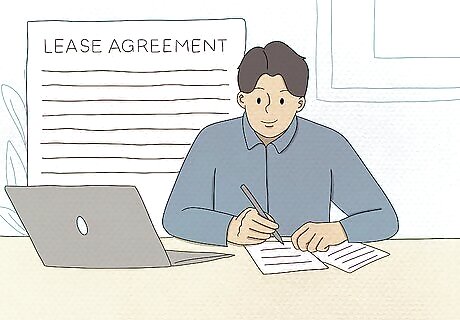
Draft a lease agreement. A lease agreement is meant to protect you as the landlord. It explains the key terms of the agreement. If the tenant breaks the lease, then you can have them ejected and sue for owed rent. An ideal lease agreement will contain the following information: length of the lease whether the tenant has the option to renew the amount of rent security deposit and the conditions for getting the deposit returned whether the tenant can sublease the space or transfer the lease to someone else

Get a security deposit. The deposit protects you in case the tenant skips out on you before the lease expires. You can also use the deposit to make any repairs for damage done to the property. You should set a security deposit you feel comfortable with. One or two months would be ideal. Generally, state law doesn’t limit how much you can ask for as a deposit for commercial space, so you can come to an agreement with the renter. To make things easier, you can put the security deposit in an account separate from your own accounts. This way you’ll know not to accidentally spend the security deposit.
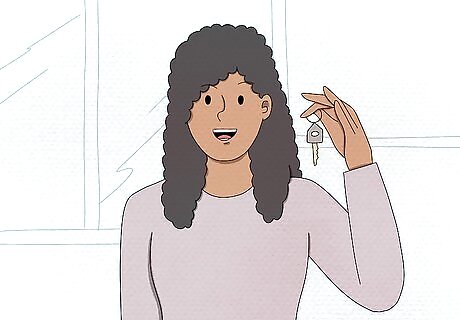
Have a key made. If you aren’t sure that you’ll be home when the tenant needs to use the office, then you should have a key made. You certainly don’t want to lock out a tenant. You can have a key made by visiting a hardware store.

Be a good landlord. Being a landlord means responding to complaints from your renter in a timely fashion and making sure that the office space is always habitable. Your home should always be properly heated and you should maintain a quiet environment for your tenant to enjoy. Communication is key. If you’re having repairs made in your home, then let the tenant know.




















Comments
0 comment